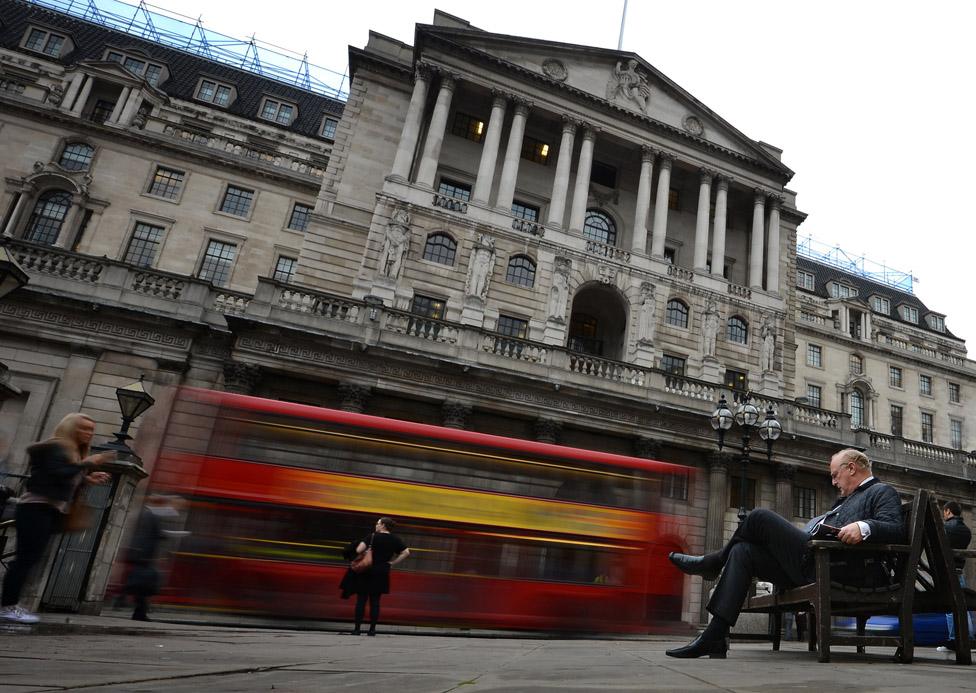How Bank of England could help EU out campaign
- Published
- comments

So at four o'clock this afternoon a few dozen hacks will be locked in the Bank of England, where we will be given a 100-page review by the Bank on how and whether leaving the European Union would affect its responsibility to deliver monetary and financial stability.
It all sounds pretty momentous. We'll be briefed for an hour by the deputy governor Sir Jon Cunliffe, and we will not be allowed to leave, email, phone or tweet till six o'clock, when the governor will give a speech about all this in the Cairncross memorial lecture at St Peter's College Oxford.
Given all the secrecy and administrative rigmarole, the expectation is that this will be an intervention equivalent in its significance to what the Governor had to say almost two years ago about Scottish independence - and how the growing tax-and-spending autonomy of an autonomous Scotland could put dangerous pressure on the Scottish National Party's hoped-for monetary union with the UK.
Although Mark Carney wasn't explicit, he was seen to be implying that the prosperity and economic stability of Scotland would be damaged by independence.
The widespread presumption therefore is that the Bank of England is a conservative institution (small 'c') and is therefore bound today to come down in favour of the status quo, or continued British membership of the EU.
And this is seen to be made more probable given that the previous incarnation of the individual in charge of the EU in-out review, Cunliffe, was as the UK's Permanent Representative to the European Union - who would be seen as a cautious pragmatist and certainly not a rabid eurosceptic.
However I suspect all that may be to misunderstand the dynamic of the national debate on whether to remain in or leave the EU and also the scope of what the Bank can say.
What is crucial to note is that the Bank is only addressing two issues: would leaving the EU make it harder for the Bank to achieve its target of keeping inflation at 2%; and would quitting the EU somehow make it more difficult for the Bank to prevent banks behaving recklessly or to prevent the City and financial system swinging from boom to bust?
There are arguments in both directions: EU rules have occasionally been seen at the Bank as constraining its room for manoeuvre when regulating banks to keep them safe; on the other hand there is a case that financial institutions' unfettered access to the whole EU market, which could be constrained by exit, makes them more balanced and steady.
That said, the very important point is that the Bank is not opining on whether the UK will be richer or poorer outside the EU. So it won't in any decisive way adjudicate between the passions on each side of this argument.
But it would be extremely odd if its conclusion was other than that it will be able to do its job effectively were the UK out or in the EU.
And if that's the case, that may well cause the pro-Europeans to despair and would presumably make the eurosceptics sing gaily and skip.
Because where fear of the unknown will be a factor in how people vote in the future referendum, if the Bank says that it can and will maintain the underlying conditions for prosperity - low and stable inflation, a sound banking system - in all eventualities, that is bound to be helpful to the cause of the EU outs.